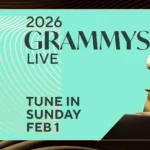When Secretary-General Mark Rutte made waves at the recent NATO conference in The Hague by playfully referring to former US President Donald Trump as “daddy,” participants were both surprised and amused. During Trump’s evocative comparison of the Israel-Iran conflict to a schoolyard brawl, Rutte then emphasised that he meant it metaphorically, comparing European reliance to a child seeking comfort.
During a press briefing, Trump seemed amused by the moniker, grinning and saying, “He likes me… Daddy, you’re my daddy.” He made a lighthearted remark about “hitting him hard” if Rutte’s affection wavered as part of his acceptance. The White House responded with a humorous “Daddy’s Home.”
Some allies were surprised by the casual tone, even though it was humorous. Rutte later defended his remark, emphasizing that it wasn’t literal but rather reflected the U.S.’s reassuring role within NATO. The moment highlighted the evolving dynamics between Trump and European leaders, and underscored Trump’s enduring influence on the alliance as defense spending debates intensified.
What began as a casual joke became a viral talking point—turning diplomatic decorum into social media fodder. Whether viewed as affectionate branding or eyebrow-raising informality, the “Daddy” label became a defining image of the summit’s media coverage.






